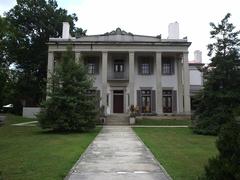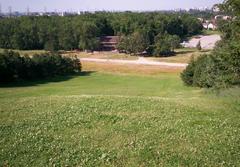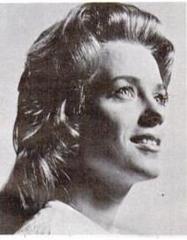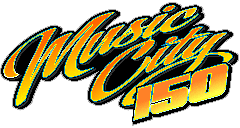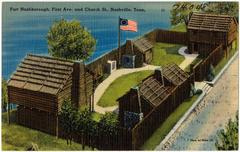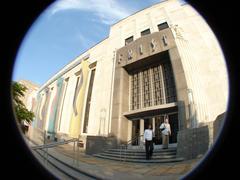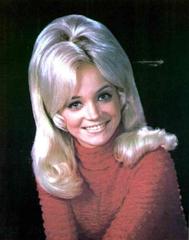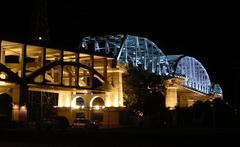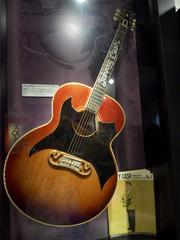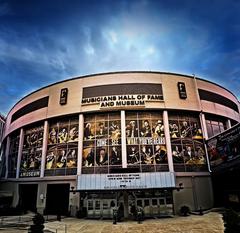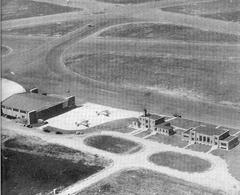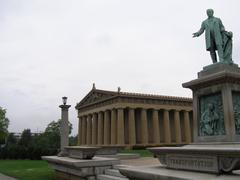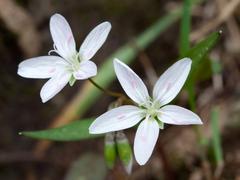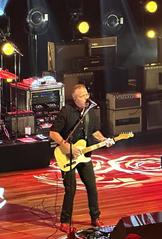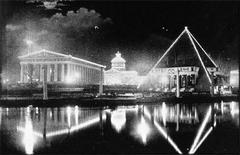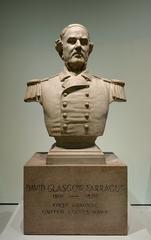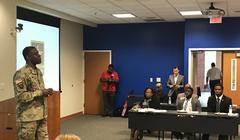
Herschel Greer Stadium Visiting Hours, Tickets, and Nashville Historical Sites Guide
Date: 04/07/2025
Introduction to Herschel Greer Stadium and Its Historical Significance
Nestled just south of downtown Nashville, Herschel Greer Stadium stood as a vibrant testament to the city’s intertwined love of baseball, music, and history. Opened in 1978 through the efforts of Larry Schmittou and named after local businessman Herschel Lynn Greer, the stadium served as home to the Nashville Sounds minor league baseball team for 37 seasons. Iconic for its distinctive guitar-shaped scoreboard—an homage to Nashville’s “Music City” moniker—Greer Stadium became more than a sports venue; it was a cultural hub and landmark.
Though the stadium closed in 2014 due to outdated infrastructure and evolving league standards, its legacy continues. The site is now integrated into Fort Negley Park, a significant Civil War-era fortification and green space commemorating African American heritage and the city’s complex past. Visitors today can explore walking trails, memorials, and interpretive exhibits while taking in panoramic downtown views. This guide delves into Greer Stadium’s rich history, its lasting impact, practical visitor and accessibility information, and the transformation of its grounds as part of Fort Negley Park’s ambitious redevelopment (Small Town Big World; Baseball Pilgrimages; Fort Negley Park).
Table of Contents
- Origins and Construction
- Sports and Cultural Significance
- Notable Events and Renovations
- Visiting the Greer Stadium Site Today
- Legacy and Transformation
- Fort Negley Park Expansion Overview
- FAQs
Origins and Construction
Herschel Greer Stadium was envisioned by Larry Schmittou—a Vanderbilt baseball coach and Nashville native—who sought to revive professional baseball in Davidson County after the Nashville Vols disbanded in 1963 (Small Town Big World). With strong community support, Schmittou secured land adjacent to historic Fort Negley. Despite financial obstacles, construction was completed at a cost of $1.5 million, and the stadium was named for Herschel Lynn Greer, a key supporter of local baseball (Wikipedia).
Greer Stadium officially opened on April 26, 1978, welcoming the Nashville Sounds, then a Double-A Southern League team (Simple Wikipedia).
Sports and Cultural Significance
Baseball Legacy
Serving as the Sounds’ home from 1978 to 2014, Greer Stadium witnessed the team’s progression from the Double-A Southern League to the Triple-A American Association and Pacific Coast League (Wikipedia). The venue’s capacity expanded from 10,000 to 18,000 through renovations in the late 1980s. The Sounds achieved three league championships and nine division titles during their tenure. Greer Stadium also briefly hosted the Nashville Xpress in the early 1990s (The Ballpark Guide).
Iconic Features
Greer’s most memorable feature was its guitar-shaped scoreboard, installed in 1993. Measuring 116 feet wide and 53 feet tall, it became a beloved symbol of Nashville’s musical identity (The Ballpark Guide). The scoreboard not only displayed scores but also featured musical elements—underscoring the city’s unique blend of baseball and music.
Community Impact
Beyond baseball, Greer Stadium hosted concerts, family-friendly events, and gatherings, reinforcing its role as a cornerstone of Nashville’s cultural landscape (Songkick). Its proximity to Fort Negley allowed visitors to experience both sporting traditions and historical education.
Notable Events and Renovations
- Attendance Records: In 1980, Greer Stadium set a Southern League attendance record with over 575,000 fans (Wikipedia).
- Upgrades: Improvements included expanded box seating, new entrances using Fort Negley stone, and enhanced field drainage—aimed at attracting Major League Baseball interest.
- Memorable Moments: The stadium saw eight no-hitters, and hosted future stars such as Don Mattingly, Buck Showalter, and Ryan Braun (The Ballpark Guide).
- Challenges: By the 2000s, the stadium could not meet Triple-A standards. Despite renovation attempts, the Sounds moved to First Horizon Park (formerly First Tennessee Park) in 2015 (Wikipedia; Small Town Big World).
Visiting the Greer Stadium Site Today
Hours and Access
While the stadium itself has been demolished, the site is accessible within Fort Negley Park, open daily from 8:00 AM to 8:00 PM (hours may vary seasonally). There is no admission fee to visit the park or the former stadium location.
Accessibility and Tips
The park offers paved, wheelchair-accessible trails, picnic areas, and interpretive signage detailing the area’s history. Free public parking is available nearby, and the park is accessible via Nashville’s public transit system.
Nearby Attractions
- Fort Negley: Explore the Civil War fortification with its visitor center, trails, and exhibits.
- Downtown Nashville: Just a few miles away, visitors can enjoy music venues, the Country Music Hall of Fame, and the Tennessee State Museum.
- First Horizon Park: Catch a Nashville Sounds game at their current downtown home.
Special Events
Fort Negley Park hosts a variety of community events, historical reenactments, and occasional guided tours highlighting the area’s baseball and Civil War history. Check the park’s website for the latest schedule.
Legacy and Transformation
Following the Sounds’ final game in 2014, Greer Stadium stood vacant until its demolition began in 2019, carefully managed due to archaeological sensitivities. The grounds are now part of an expanded Fort Negley Park—restoring green space and honoring the site’s Civil War and African American history (Fort Negley Park). Though the stadium is gone, its spirit endures in the city’s memory and the evolving park.
Fort Negley Park Expansion Overview
Historical Context and Redevelopment
The closure and demolition of Greer Stadium paved the way for the ambitious Fort Negley Park expansion, emphasizing preservation, education, and community connection. The redevelopment recognizes the site’s Civil War significance and its role in African American labor history (Dogwood Dispatches; Nashville Post).
Master Plan Features
The 2022 Fort Negley Master Plan, a $50 million project, includes:
- Memorial Lawn: Honoring approximately 2,700 free and enslaved African American laborers who built the fort in 1862, with a reflective memorial wall (NASHToday).
- Freedom Plaza: A symbolic gateway connecting the Wedgewood-Houston neighborhood to the park via a broad promenade.
- Trails and Meadowlands: Scenic trails replace the former stadium’s footprint, featuring interpretive signage on the fort and stadium’s shared history.
Honoring the Bass Street Community
The expansion also commemorates the Bass Street community—Nashville’s first free Black neighborhood, displaced during I-65’s construction. Planned archaeological digs and interpretive displays will preserve and share its story (Nashville Post).
Visitor Information and Amenities
- Hours: Open daily from 8:00 AM to 8:00 PM (check official website for updates).
- Admission: Free. Special events or tours may require tickets.
- Guided Tours: Available through the Visitors Center; reservations recommended.
- Accessibility: Paved paths, ramps, and accessible restrooms ensure comfort for all visitors.
- Parking: New lots and restored stone gates are planned for improved access (Nashville Banner).
Project Timeline and Community Engagement
Phase One construction begins in spring 2025, lasting 12–18 months, supported by Metro Council funding. Community engagement, including input from descendants of the Bass Street community and historians, has been central to planning. The park’s UNESCO Site of Memory designation highlights its significance (Nashville Banner).
Frequently Asked Questions (FAQs)
Q: Can I visit the Greer Stadium site?
A: Yes, the site is accessible as part of Fort Negley Park, open daily during park hours.
Q: Is there an admission fee or do I need tickets?
A: Admission to the park is free. Tickets may be required for special tours or events.
Q: Are there guided tours?
A: Yes, the Fort Negley Visitors Center offers guided tours. Advance booking is suggested.
Q: Is the park accessible for those with disabilities?
A: Yes, accessible paths and facilities are available.
Q: What other attractions are nearby?
A: Fort Negley itself, downtown Nashville’s museums and music venues, First Horizon Park, and more.
Visual Recommendations
- Historic photos of Greer Stadium game days (alt: “Historic game at Herschel Greer Stadium Nashville”)
- Guitar-shaped scoreboard (alt: “Guitar-shaped scoreboard at Herschel Greer Stadium”)
- Current photos of Fort Negley Park and memorial features (alt: “Fort Negley Park memorial lawn honoring African American laborers”)
Summary and Visitor Tips
Although Herschel Greer Stadium no longer stands, its spirit remains embedded in Nashville’s cultural and sporting identity. The transformation of its grounds into an expanded Fort Negley Park honors both the city’s baseball legacy and the deep Civil War and African American heritage of the site. The ongoing master plan promises accessible educational and recreational spaces—memorial lawns, Freedom Plaza, scenic trails, and interpretive exhibits. Visitors can explore these areas daily and for free, while learning about Nashville’s unique blend of sports, music, and history. For current hours, special events, and guided tours, consult Fort Negley Park’s official resources and consider using tools like the Audiala app to enhance your experience (Nashville Post; Independence Demolition; Fort Negley Park).
References and Further Reading
- Herschel Greer Stadium History, Visiting Information, and Legacy in Nashville, 2024, Various Authors (Small Town Big World)
- Greer Stadium Nashville: Visiting Hours, Tickets, and Historical Significance, 2024, Baseball Pilgrimages (Baseball Pilgrimages)
- Herschel Greer Stadium Nashville: History, Closure, and Redevelopment Plans, 2024, RIP Baseball & Independence Demolition (Independence Demolition)
- Fort Negley Park Expansion: Visiting Hours, Tickets, and Historical Highlights in Nashville, 2024, Nashville Post & Dogwood Dispatches (Nashville Post)
- Fort Negley Park
- NASHToday
- Nashville Banner
- Civic Design Center
- Songkick
- Wikiwand
- RIP Baseball
- Metro Nashville Parks and Recreation
- Visit Music City - Nashville Tourism
- Fort Negley Park Information




















